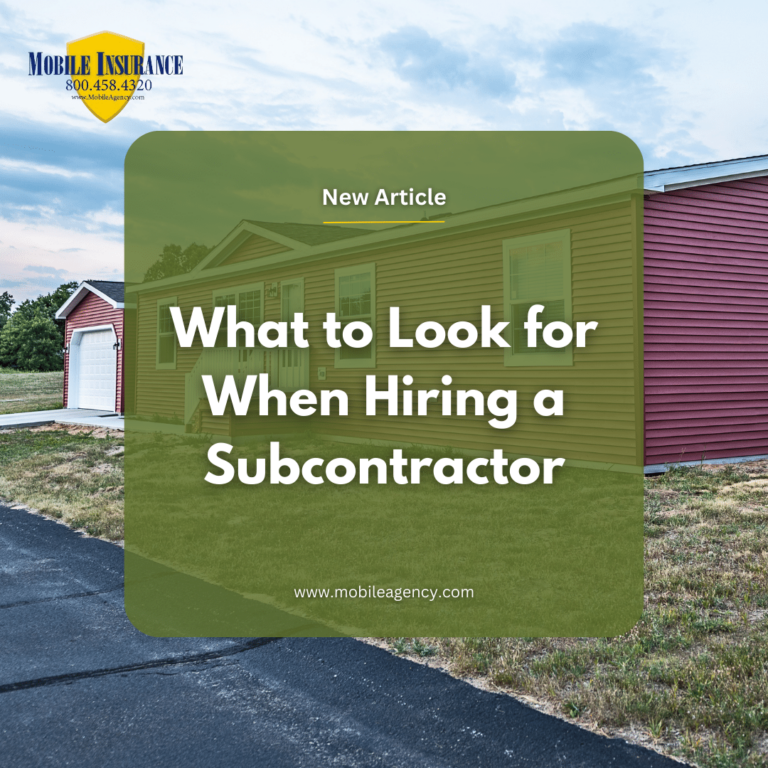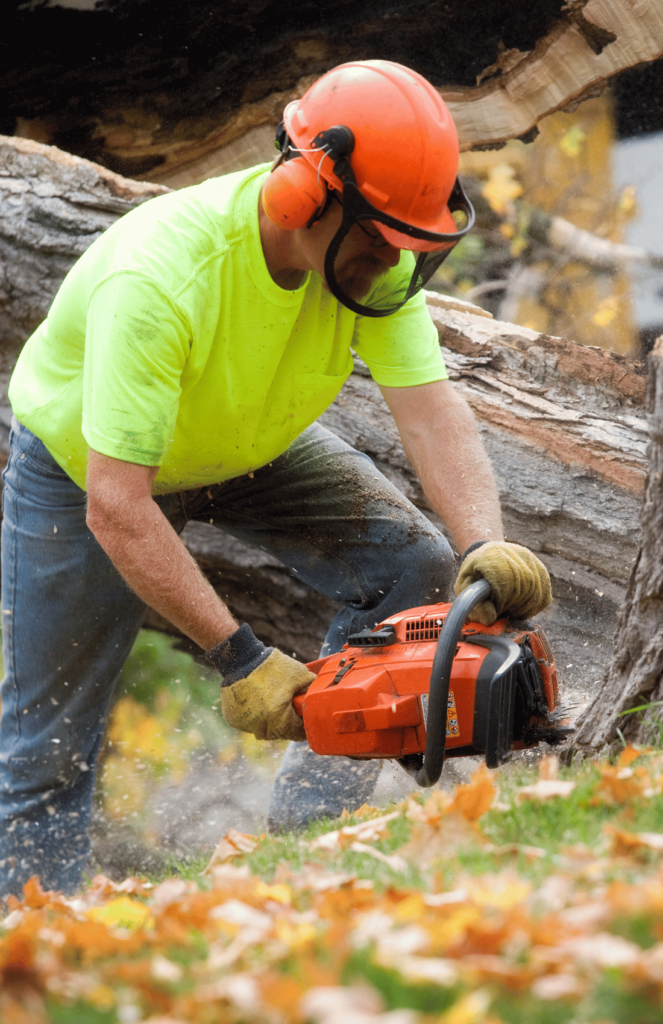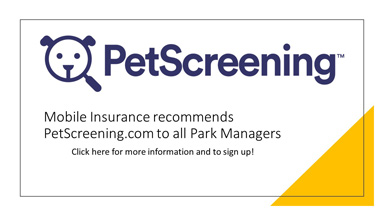
As a manufactured home community owner, there are many reasons why you would need to hire subcontractors for work around your community. You may have general maintenance employees on staff, but sometimes the work requires a more specialized skill or equipment. Some of this work may include, paving roads, building expansions, roof repair, septic system or plumbing issues, pool repair, and more. When you’re looking for a subcontractor to perform these jobs, it is a good idea to vet who you’re hiring to make sure they’re right for the job and ensure they are licensed and insured.
Hiring a Subcontractor for Your Manufactured Home Community
Ask Around – If you’re looking for someone to do some work around your community and don’t know where to start, a good place is to ask friends, family, or business colleagues if they have someone they would recommend. You can also look online and see if there are any reviews you can check out.
Request References – When hiring for work, checking references is an important part of the process. This will give you an idea of what kind of projects they’ve worked on and if it matches the scope of work you require.
Check Safety Records – Industries like construction and roofing get rated with an Experience Modification Rate. This number takes into account the cost of company accidents and is used to assess future risks. Any rate of 1.0 or lower is considered a good EMR. You can also see if the company has any violations with the Occupational Safety and Health Administration (OSHA) on its website here.
Ask for Insurance – Independent contractors, third parties you hire to perform work for you, should provide proof of workers’ compensation and general liability insurance with a limit of at least $1,000,000 per occurrence via a Certificate of Insurance.Subcontractors, those you hire to perform work for others (ex. transport

or install a manufactured home you sold), must name you as an “additional insured” on their policies and note that on the Certificate of Insurance you send. Note these insurance requirements in your contracts. Uninsured Contractors generally piggyback on your insurance for a free ride. This not only creates an additional risk to you, it also subjects you to costly end of policy term audits that are owed retroactively – you get another bill for last year’s insurance!
Agree on Terms – Make sure your expectations are clear and the subcontractor is positive they can reach these expectations. Create a contract outlining the scope of work, the schedule and timeline, payment terms, and any requirements.
When you hire a subcontractor, you want to hire someone who puts safety at the forefront and complies with the conditions you put in place. This helps protect your residents, employees, and business. This is why it is important to vet your subcontractors before you hire them. For more industry resources, check out our info and articles page here or contact us through our website here.

